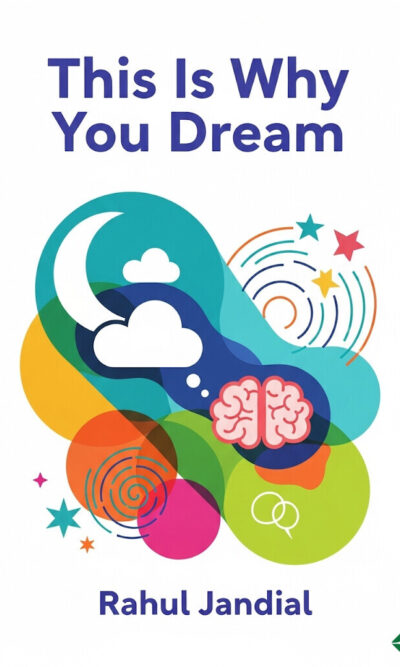Description
Weirdness is something almost everyone feels at some point in life. It might happen when you’re at school, at work, or even in your own family. The feeling is simple: you don’t fit in. You’re out of place. While this can hurt deeply, it can also be a powerful source of strength if you learn how to use it.
Author Olga Khazan knows this personally. She moved from Russia to a small town in Texas when she was very young, and the people around her quickly noticed she was different. She spoke a different language, came from a different culture, and often felt like she didn’t belong. Her experiences led her to spend years interviewing people who live outside the norm. These included men working in jobs usually held by women, women in male-dominated fields, people with physical differences, and those with unusual beliefs. What she discovered is that weirdness can be both a burden and a gift.
At first, being weird usually feels more like a burden. Human brains are wired to be suspicious of difference. Our ancestors survived by sticking closely to groups that looked and acted the same, and those instincts remain with us today. That’s why people often stare at someone who looks unusual or exclude those who act differently. Sometimes, the rejection is quiet and subtle; other times, it’s direct and cruel. For the person on the receiving end, this can be exhausting.
The harm of being singled out goes beyond emotions. Research shows that loneliness and social rejection damage physical health. The stress of constant judgment can raise inflammation in the body, increase heart risks, and even weaken the immune system. Some studies suggest that lacking strong social connections can be as harmful as smoking a pack of cigarettes each day. People who constantly face discrimination are also more vulnerable to depression, anxiety, and even suicidal thoughts.
But that’s not the whole story. Feeling weird can also push people to grow in extraordinary ways. Outsiders often develop creativity because they have to find new paths when the usual ones are blocked. They become problem-solvers, innovators, and independent thinkers. People who have faced rejection also learn resilience. They learn how to keep going even when life feels unfair, and that toughness can become a lifelong advantage.
Take the example of Leslie Wagner-Wilson. She grew up feeling out of place in her family’s religious group, which eventually became the infamous Jonestown cult. Despite pressure to conform, she trusted her doubts. On the very day when more than 900 people followed the leader’s deadly command, she escaped through the jungle with her child. Her survival was only possible because she had learned to listen to her own instincts rather than giving in to the group.
Other people Khazan interviewed turned their differences into professional strengths. One man, a rare male preschool teacher, faced suspicion simply for working in a field dominated by women. At one point, he was even falsely accused of misconduct. Though he was cleared, the experience nearly destroyed his career. Instead of giving up, he educated himself about the psychology of prejudice, and he now teaches others about making early education safer for everyone, especially LGBTQ+ educators. He turned his hurt into a mission to help others.
This shows that being weird is not just about suffering—it can also inspire action. People who know what it feels like to be outsiders often work to make life better for those who will come after them. They find strength in helping, leading, and speaking out.
Of course, living with weirdness still requires strategies. One useful tool is reframing your story. Instead of telling yourself you were excluded because you lacked something, remind yourself that people reacted to your uniqueness because they didn’t understand it. Shifting the way you explain your own life can increase your confidence and make you less likely to internalize negativity.
Another strategy is to deliberately practice skills you wish you had. Personality is not fixed forever. If you want to be more outgoing, you can push yourself to take small steps toward it—speaking up in meetings, joining a group, or practicing public speaking. Over time, the behavior shapes the personality. Weirdness doesn’t mean being stuck with disadvantages; it means you have room to grow in ways that make sense for you.
Support networks also matter. No one thrives completely alone. Having a few trusted people who accept you for who you are can buffer the hardest parts of being different. Whether it’s family, friends, or a chosen community, the presence of allies can make weirdness easier to carry.
Some people choose to change their surroundings entirely. For instance, a surgeon with dwarfism faced rejection from nearly 60 medical schools. Many told him that patients would not respect a doctor who looked like him. But he kept going until one school accepted him, and he went on to become a top professor at a world-class hospital. His difference, once seen as a barrier, became part of what made him remarkable and memorable to patients.
Others, however, look for communities that align more closely with their identity. One man moved his family across the country to live in a place that matched his political values. For him, feeling comfortable meant being surrounded by people who shared his worldview. These stories show that there is no single formula for dealing with weirdness. Some people thrive by standing out boldly. Others find peace by blending into a new community. The common thread is that each person chooses the environment where they can live most authentically.
The larger lesson is simple: everyone is weird in some way. Even those who seem to fit in perfectly have quirks, doubts, or experiences that set them apart. Weirdness is not rare; it’s universal. What matters is whether we hide it in shame or use it to shine.
If you feel like an outsider, remember that you are not alone. Weirdness has shaped countless lives, and it has produced leaders, innovators, artists, and survivors. The very qualities that once made you feel small can become the same qualities that make you powerful. Weirdness, in the end, is not something to get rid of—it’s something to embrace, because it is the clearest sign that you are fully, uniquely yourself.





